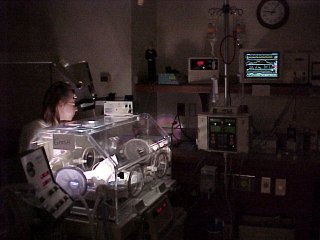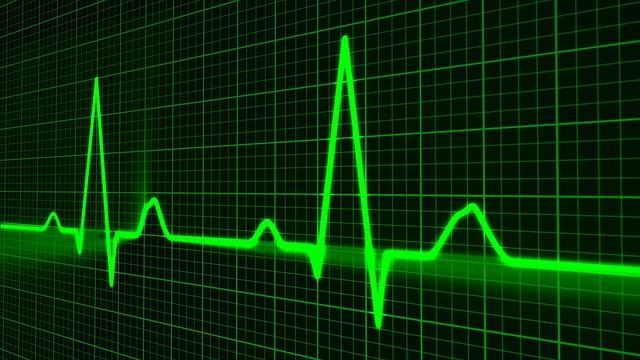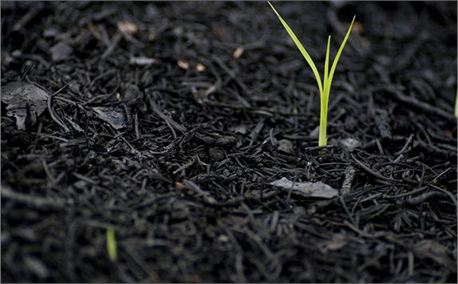
Every year, the translator at our pediatric hospital asks this question:
What are the four hardest words to translate?
He will pause for a moment and then say,
Your child is dead.
Every time I hear it, I wonder how many times he has had to say that phrase. Every year, I think the tally must be a little higher.
Fixed in every medical provider’s mind are similar moments of unsettling and stunning grief. Death, crippling injury, and disability rarely happen in the dramatic TV show ways. They are ordinary and commonplace. A car accident left one child with a few scratches but instantly killed his sibling. The seasoned pediatric surgeon who told me the story was visibly distraught by it; he said, “Go home and hug your kids tight tonight. I will.”
A two year old drowns in the kiddie pool in the backyard. A newborn has brain cancer. A girl with Down Syndrome develops leukemia. “What are the odds that these tragedies can happen?” you may wonder. I can tell you. Of children under 14, approximately eight out of every 100,000 will die from drowning. If you live in Japan’s Kunamoto Prefecture, your child’s chance of developing a brain tumor (which is thankfully still rare) may actually depend on the time of year of birth. Children with Down Syndrome have a twenty-fold higher risk of leukemia than other children.

But I am rarely asked that question when actually standing in the ICU or at the bedside. The probabilities and statistics really don’t matter when it is your child, no matter how probable or freakishly rare the event has been. The visible struggle by a parent to understand the question, “Why me? Why my child? Why this tragedy?” is one of the most difficult things to watch as a healthcare provider or as a family member or as a friend. It is almost as difficult as being the parent.
My older sister was diagnosed at a young age with some form of intellectual disability. She didn’t have Down Syndrome or autism or something more easily recognizable or classifiable. It could have been more accurately described as speech/language/processing delays, but what did that matter to an eight year old sibling? All I knew is that she was kind but often needed help, that it was somehow my responsibility to protect and defend even though she was older and bigger, that schoolmates or “friends” at church that called her retarded were right and wrong at the same time.
I am still not sure exactly how my parents felt while raising us. I don’t know what Reasons(2) my mother believed were responsible for our situation, though I am sure she must have felt guilty or like a failure at many points. Even though she searches for reasons and a divine explanation for things, she is very practically-minded and has an iron will and nerves of steel. So we learned from her example and survived years of bullying and social isolation. We threw ourselves into reading and started going to church. We didn’t know why things were so hard; we just wanted to survive and perhaps even thrive.

At some point when we were in high school, my father became a Christian. I am still not exactly sure how this transformation happened, but I know that he changed a lot. He grew up in an impoverished village in a foreign country. He studied innumerable hours and devoted so much time in his young career (and through our childhood) to achieve and provide for our family. He had observed much suffering in his life up to that point, and yet I wonder if, in his rationally and achievement driven framework, there was still no algorithm or script for this aspect of it.
My father and I were driving together in the car one day and I asked him how he became a Christian. He thoughtfully described a lot of the reading he did as part of his own exploration: reading the text of the Bible itself, reading various apologetic books, listening (and arguing) with my mother and many of her Christian friends. But he said this was the final Reason: “One day your sister asked me, ‘Dad, are you a Christian?’ and I said, ‘No.’ She said, ‘Oh. But I want you to be in heaven with mom and David and me.’ That is what got me thinking.”
Every day, I am tasked with explaining the clinical significance of a patient’s disease in human terms. I struggle to find words that answer the hardest questions humanity can come up with: what is consciousness, what is suffering, why we are in pain, why a child must suffer, why bad things happen, why why why. I am ethically and clinically obligated to describe the dry statistics and mechanisms of pathophysiology, and I try to do so in ways that make sense. Usually these are sufficient enough to help the patient cope and make it to the next step in treatment or therapy or decision making.
But much of the time it comes up short. There is a gap in what the science describes is happening to a patient and why it occurs. Believe me when I tell you that patients are rarely satisfied with the science. Even I am rarely satisfied with it even though armed with the details of a patient’s cellular physiology, biochemistry, pharmacokinetics, healthcare delivery system, socioeconomic environment, psychological coping mechanisms, etc. Even I am still left wondering why bad things happen to people, and why those things have to hurt so much.
How do healthcare providers cope with grief, loss, and suffering? The science tells us we develop our own coping mechanisms: humanism, altruism, cynicism, alcoholism, countertransference, PTSD, humor. Really, we handle it just like anyone else does. A description of the universe as an orderly and rational place is great and all but it doesn’t explain why, at the end of a long and hard shift, you want to cry or get a round of drinks or go home and hug your kids or believe in heaven. It just doesn’t.
You cannot understand why people believe in religion until you understand why they suffer. Either God exists as the primum movens, the first cause for all the universe and takes upon himself all the blame, glory, and consolation for every dead child, every suffering parent, every devastating cancer, every global or personal tragedy, or you believe that nothing does and that it is all a product of molecules banging together in statistically sound but metaphysically meaningless ways. I often struggle to articulate why I believe in God and why I am a Christian. But the struggle is not between the “science” of what is true in the world and the “irrationality” of religion, because in my serial objective observations of the world, what is truly irrational is to observe the sheer volume of its suffering and believe that there is no meaning and no purpose except what we can invent for our own egotistical consolation.

I recently heard a Christian physician say, “Believing in God is a testable hypothesis. He says, ‘Taste and see that the Lord is good.’ It is an open invitation.” I have found that there is great satisfaction and joy and Reason enough to believe that God is good. That is fundamentally why I am a Christian. It may sound like a paltry reason, but it is as empiric and testable as any other. It was good for my father. It was good for my mother and my sister. It has been good to me. I have confidence that you will find solace with God as well.
Oh, taste and see that the Lord is good!
Blessed is the man who takes refuge in him!
Oh, fear the Lord, you his saints,
for those who fear him have no lack!
The young lions suffer want and hunger;
but those who seek the Lord lack no good thing.Come, O children, listen to me;
I will teach you the fear of the Lord.
What man is there who desires life
and loves many days, that he may see good?
Keep your tongue from evil
and your lips from speaking deceit.
Turn away from evil and do good;
seek peace and pursue it.The eyes of the Lord are toward the righteous
and his ears toward their cry.
The face of the Lord is against those who do evil,
to cut off the memory of them from the earth.
When the righteous cry for help, the Lord hears
and delivers them out of all their troubles.
The Lord is near to the brokenhearted
and saves the crushed in spirit.
Notes
- Editor’s note (Thomas B. Grosh IV): Some of my response to “Your child is dead.” can be found in One more day when you can live your life . . . (page 7 and following). Inspired by David and regular interactions with members of the Christian Medical Society (CMS)/CMDA at Penn State Hershey College of Medicine, I intend to update and expand this material in summer 2014. Stay tuned.↩
- For some background read the first post in the series: Reasons: Why I am a Christian (3/29/2014).↩
David graduated from Princeton University with a degree in Electrical Engineering and received his medical degree from Rutgers – Robert Wood Johnson Medical School with a Masters in Public Health concentrated in health systems and policy. He completed a dual residency in Internal Medicine and Pediatrics at Christiana Care Health System in Delaware. He continues to work in Delaware as a dual Med-Peds hospitalist. Faith-wise, he is decidÂedly Christian, and regarding everything else he will gladly talk your ear off about health policy, the inner city, gadgets, and why Disney’s Frozen is actually a terrible movie.

Thanks David, this was very thoughtful and thought-provoking.